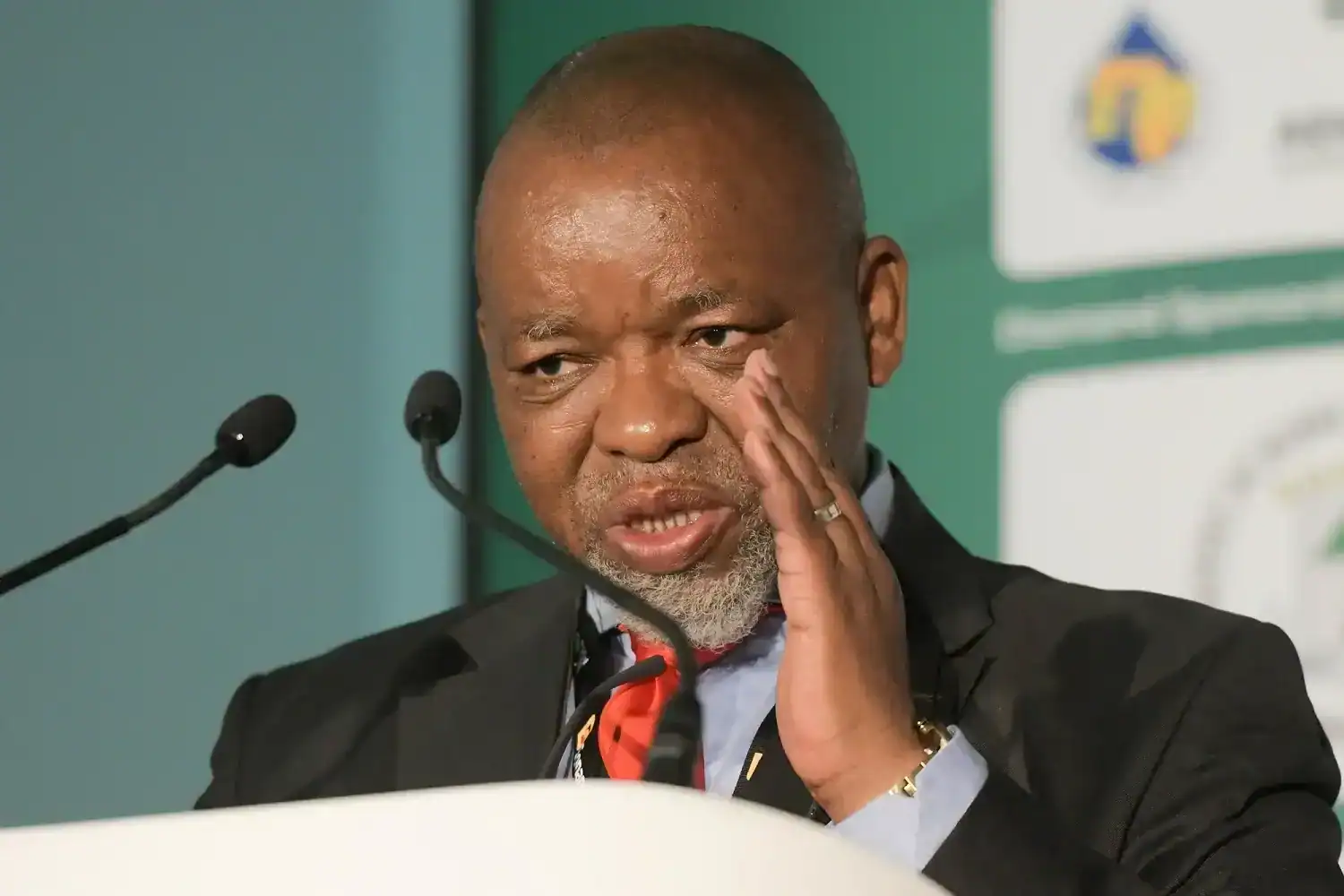Transformation policies, such as BEE, have been in the spotlight, with organisations like AfriForum and the DA calling for the government to repeal them.

The mining industry should not be ashamed of the country’s transformation policies, which have enabled the historically disadvantaged to participate in economic activities, says Minister of Mineral Resources and Energy Gwede Mantashe.
On Friday, Mantashe engaged with the mining industry to discuss the current realities affecting the industry, including illegal mining, transformation and critical minerals.
He said people had been misled into thinking the ANC was their biggest problem, when in fact it was the one that had spearheaded transformation.
ALSO READ: Concerns over Mantashe’s changes to draft mineral resources Bill
“In your vocabulary, there was never apartheid; apartheid was never a problem and in your vocabulary, colleagues, your problem is the ANC. We’re saying that cannot be factual,” said Mantashe.
“Today, we are participating in the economy actively and nobody boasts about the coal mining that is owned and managed by black South Africans, something that we’d never imagined.”
Slow progress in transformation
Transformation policies, such as BEE, have been in the spotlight, with organisations like AfriForum and the DA calling for the government to repeal them.
Even US President Donald Trump’s administration has promoted the resettlement of Afrikaner refugees, who it says were escaping “government-sponsored race-based discrimination”.
However, Mantashe noted that although progress had been made in implementing these policies, the country’s economy still does not accurately reflect its diversity.
“Too often, transformation is treated as a box-ticking exercise – changing faces in boardrooms without changing the fundamental structure of ownership,” Mantashe said.
ALSO READ: Will the scourge of illegal mining continue to plague SA in 2025?
“My argument is that we can’t be apologetic about it. Beneficiaries of change – young people – sometimes don’t appreciate it. They think it’s luck and they’re clever, and that’s why they’re executives. They’re not executives because they’re clever, but because policy has changed and accommodated them. They must appreciate it and be part of this change and drive it.
“Transformation is not about replacing white faces with black faces. It is about changing the attitude and modus operandi of the economy. It is about ensuring meaningful inclusion, skills transfer, empowerment and genuine opportunities for historically disadvantaged South Africans.
“If we only change appearances, transformation risks being symbolic and hollow. Our goal is to ensure broad, equitable and sustainable participation in the mining industry and the mainstream economy.”
Mantashe on illegal mining
Another challenge facing the mining industry is the scourge of illegal mining, Gwede said.
In 2024, illegal mining is estimated to have drained R60 billion from the economy.
“That is revenue stolen from our fiscus, thus undermining government authority, robbing our people of jobs and threatening national security,” Mantashe said.
ALSO READ: Motshekga blames DRC, Denel and illegal mining for defence department’s poor finances
“Recognising that there is no panacea to address illegal mining, the government has adopted a multi-disciplinary enforcement campaign.”
The South African Police Service (Saps) has confirmed that since the inception of Operation Vala Umgodi in December 2023, more than 27 000 suspects have been arrested.
More than 600 firearms, which include imitation firearms (toy guns) and 16 000 rounds of ammunition, were seized.
“Despite our efforts, illegal mining continues to persist,” Mantashe said.
“This means that law enforcement alone is not enough. We need industry collaboration, tighter controls in the value chain, stronger regional cooperation and the courage to close loopholes that allow stolen minerals to enter the market.”
The draft Mineral Resources Development Bill seeks to combat illegal mining, says Mantashe.
“The government is introducing measures to tighten the law by prohibiting illegal mining and the transportation of mineral resources without the required documentation, strengthen enforcement powers and close regulatory gaps.
“We are providing a legal distinction between illegal mining, which is a criminal activity, and artisanal and small-scale mining, which is a legitimate economic activity. Let us be clear that those who enter our country illegally and engage in unlawful mining can’t be legitimised through licensing.”
READ NEXT: Illegal mining: Government accused of double standards after billionaire’s mine ‘implicated’
Support Local Journalism
Add The Citizen as a Preferred Source on Google and follow us on Google News to see more of our trusted reporting in Google News and Top Stories.






